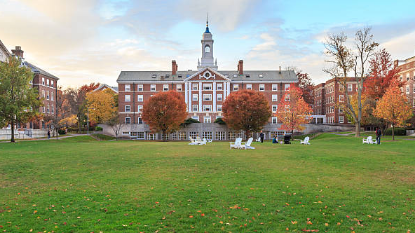Harvard University, established in 1636, is one of the most prestigious institutions of higher learning in the world. Located in Cambridge, Massachusetts, it is renowned for its rigorous academic programs, distinguished faculty, and a legacy of producing influential graduates. Harvard’s admissions process is highly competitive, with thousands of applicants vying for a limited number of spots each year. This article provides an in-depth look at Harvard’s admissions requirements and what prospective students need to know to enhance their chances of being accepted.
Overview of Harvard University
Harvard comprises various schools, including the Harvard College (the undergraduate program), the Harvard Graduate School of Arts and Sciences, and several professional schools such as Harvard Law School, Harvard Business School, and Harvard Medical School. The undergraduate program offers a liberal arts education with over 50 concentrations, and it emphasizes broad-based knowledge and critical thinking skills.
Application Process
1. Application Platforms: Harvard accepts applications through the Common Application, the Universal College Application, and the Coalition Application. Regardless of the platform, the core components of the application remain the same.
2. Application Deadlines:
- Restrictive Early Action (REA): November 1
- Regular Decision: January 1
Students applying under the REA program will receive their admission decision by mid-December, while Regular Decision applicants will be notified by the end of March.
Academic Requirements
1. High School Transcript: A strong academic record is crucial for Harvard admissions. Applicants should demonstrate consistent excellence across a range of subjects, particularly in advanced placement (AP) or honors courses if available.
2. Standardized Test Scores:
- SAT or ACT: Harvard has adopted a test-optional policy through at least the 2026-2027 application cycle due to the COVID-19 pandemic. However, students who choose to submit test scores typically present very high scores. For reference, the middle 50% of admitted students score between 1460-1570 on the SAT and 33-35 on the ACT.
- SAT Subject Tests: While no longer required, strong performance in relevant subjects can bolster an application.
3. Advanced Placement (AP) or International Baccalaureate (IB) Scores: Successful candidates often excel in AP or IB exams, demonstrating mastery of college-level material.
Non-Academic Requirements
1. Extracurricular Activities: Harvard seeks well-rounded students who exhibit leadership, initiative, and a commitment to their interests. Depth of involvement and significant achievements in extracurricular activities can distinguish applicants.
2. Letters of Recommendation: Two teacher recommendations and one guidance counselor recommendation are required. These letters should highlight the applicant’s academic abilities, character, and potential for success at Harvard.
3. Personal Statement: The personal statement, or college essay, is a critical component of the application. It allows applicants to showcase their unique voice, experiences, and motivations. Harvard values authenticity and insight into the applicant’s personality and values.
4. Supplemental Essays: Harvard requires applicants to complete additional short essays. These questions provide further opportunities to convey personal stories, aspirations, and reasons for applying to Harvard. Examples of supplemental essay prompts include:
- “Briefly elaborate on one of your extracurricular activities or work experiences.”
- “Your intellectual life may extend beyond the academic requirements of your particular school. Please use the space below to list additional intellectual activities that you have not mentioned or detailed elsewhere in your application (e.g., reading, hobbies, tinkering, etc.).”
5. Interviews: After the initial application review, some applicants may be invited to interview with Harvard alumni. The interview provides a chance to discuss the applicant’s interests and aspirations further. While not required, a successful interview can positively impact the admissions decision.
Financial Aid
Harvard is committed to affordability and offers need-blind admissions and generous financial aid packages. This means that financial need does not impact the admissions decision, and admitted students receive financial aid based on their demonstrated need. Harvard meets 100% of the demonstrated financial need of its students through grants and scholarships, not loans.
1. Applying for Financial Aid:
- FAFSA: U.S. students must complete the Free Application for Federal Student Aid (FAFSA).
- CSS Profile: Both U.S. and international students must complete the CSS Profile to be considered for Harvard’s institutional aid.
2. Financial Aid Deadlines:
- Early Action Applicants: November 1
- Regular Decision Applicants: February 1
Tips for Applicants
- Start Early: Begin preparing for standardized tests, gathering recommendation letters, and writing essays well in advance.
- Be Authentic: Show your true self in your essays and interviews. Harvard looks for genuine passion and individuality.
- Highlight Impact: Demonstrate how you have made a difference in your school, community, or other areas of involvement.
- Balance Academics and Extracurriculars: While academic excellence is crucial, strong extracurricular involvement can set you apart.
Conclusion
Harvard University’s admissions process is one of the most selective in the world, but understanding its requirements and preparing thoroughly can enhance your chances of acceptance. Focus on maintaining high academic standards, excelling in extracurricular activities, and presenting an authentic and compelling personal narrative. With careful planning and dedication, you can navigate the admissions process and potentially secure a spot at this esteemed institution.
